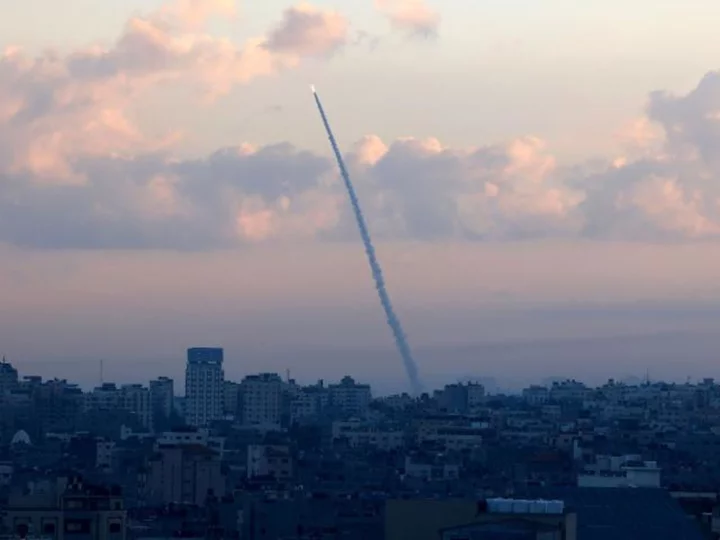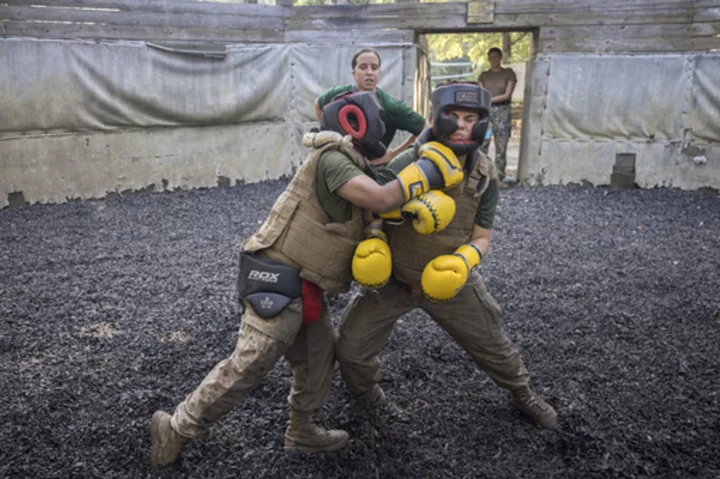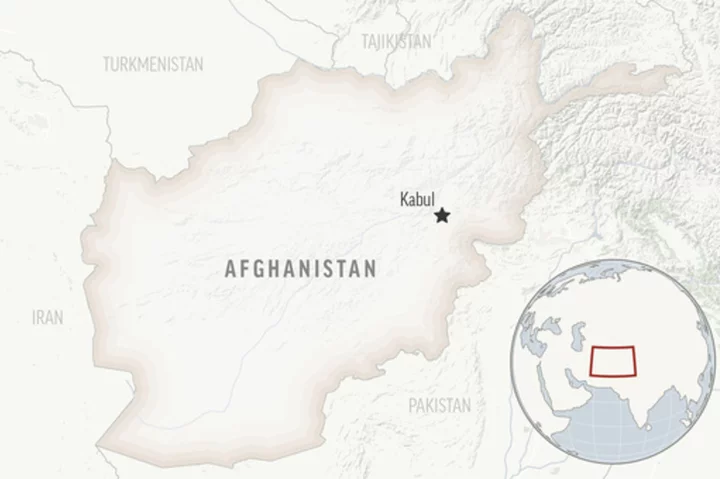The gunmen came from air, sea and land. They shot at civilians, took hostages and forced families to barricade themselves indoors, fearing for their lives.
A day that began with air raid sirens blaring out in the early morning had by lunchtime turned into one of the most terrifying attacks Israel has known in the 75 years of its existence. Assailants from Hamas, the Islamist militant group that controls the impoverished and densely populated Gaza Strip, had by nightfall killed hundreds of people and wounded hundreds more.
Though Israel is no stranger to terrorist attacks, Saturday's assault was unprecedented -- not least because of the lack of warning. Israel's military on Saturday found itself caught off-guard, despite decades in which the country became a technology powerhouse that boasts one of the world's most impressive armed forces and a premier intelligence agency.
The questions for Israeli authorities are legion. It has been more than 17 years since an Israeli soldier was taken as a prisoner of war in an assault on Israeli territory. And Israel has not seen this kind of infiltration of military bases, towns and kibbutzim since town-by-town fighting in the 1948 war of independence. How could a terror group from one of the world's poorest enclaves manage to launch such a devastating attack?
"The entire system failed. It's not just one component. It's the entire defense architecture that evidently failed to provide the necessary defense for Israeli civilians," said Jonathan Conricus, a former international spokesman for the Israel Defense Forces.
"This is a Pearl Harbor-type of moment for Israel, where there was reality up until today, and then there will be reality after today."
The IDF has repeatedly dodged questions about whether Saturday's events constitute an intelligence failure. Military spokesman Lt. Col. Richard Hecht told CNN that Israel was focused on the current fight and protecting civilian lives.
"We'll talk about what happened intelligence-wise after," Hecht said.
'Obviously not adequately protected'
Whether by coincidence or design, the attacks came the day after the 50-year anniversary of another unforeseen conflict, when a coalition of Arab states launched a surprise attack against Israel on Yom Kippur, the holiest day of the Jewish calendar, in 1973.
Since Israel withdrew from Gaza in 2005, it has spent billions of dollars securing the border from attacks. That has striking at any weapons fired from inside Gaza into Israel and stopping terrorists from trying to cross the border from air or underground using tunnels. To stop rocket attacks, Israel has used the Iron Dome, an effective rocket defense system developed with help from the United States.
Israel also spent hundreds of millions of dollars building a smart border system with sensors and subterranean walls that was, according to Reuters, completed at the end of 2021.
Israeli officials will almost certainly look at where those systems failed on Saturday. As of Saturday morning, Israel said Hamas had fired 2,200 rockets, though it did not release figures on how many of those were intercepted. Officials have not commented on if the border fence did its job.
Aaron David Miller, a former State Department negotiator on Middle East issues, told CNN's Wolf Blitzer that Israeli communities near Gaza were "obviously not adequately protected."
"I just don't think the Israelis saw this coming," Miller said.
How Israel responds will likely involve more than just border reinforcements. The Israel Defense Forces have already begun airstrikes in Gaza targeting Hamas infrastructure, resulting in hundreds of dead and injured.
Israeli Prime Minister Benjamin Netanyahu said that the country will "return fire of a magnitude that the enemy has not known," while the top official in charge of activities in the Palestinian territories, Maj. Gen. Ghassan Alian, said that Hamas had "opened the gates of hell."
Conricus, the former IDF spokesman, said Saturday's events will force Israel to back up that rhetoric and respond "in a way that it has never responded before."









